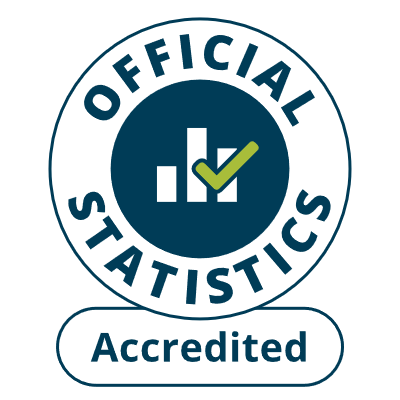
 Migration between Wales and the rest of the UK by local authority, flow, sex and age
Migration between Wales and the rest of the UK by local authority, flow, sex and age
None
|
|||||||||||||||||||||||||||||||||||||||||||||||||||||||||||||||||||||||||||||||||||||||||||||||||||||||||||||||||||||||||||||||||||||||||||||||||||||||||||||||||||||||||||||||||||||||||||||||||||||||||||||||||||||||||||||||||||||||||||||||||||||||||||||||||||||||||||||||||||||||||||||||||||||||||||||||||||||||||||||||||||||||||||||||||||||||||||||||||||||||||||||||||||||||||||||||||||||||||||||||||||||||||||||||||||||||||||||||||||||||||||||||||||||||||||||||||||||||||||||||||||||||||||||||||||||||||||||||||||||||||||||||||||||||||||||||||||||||||||||||||||||||||||||||||||||||||||||||||||||||||||||||||||||||||||||||||||||||||||||||||||||||||||||||||||||||||||||||||||||||||||||||||||||||||||||||||||||||||||||||||||||||||||||||||||||||||||||||||||||||||||||||||||||||||||||||||||||||||||||||||||||||||||||||||||||||||||||||||||||||||||||||||||||||||||||||||||||||||||||||||||||||||||||||||||||||||||||||||||||||||||||||||||||||||||||||||||||||||||||||||||||||||||||||||||||||||||||||||||||||
Metadata
- High level information
- Statistical quality information
- Weblinks
- Keywords
- Summary information
- Open Data
Title
Internal migration flows from Welsh local authorities to the rest of the UKLast update
November 2023Next update
Summer 2024Publishing organisation
Welsh GovernmentSource 1
Internal migration statistics, Office for National StatisticsContact email
stats.popcensus@gov.walesDesignation
National StatisticsLowest level of geographical disaggregation
Local authoritiesGeographical coverage
WalesLanguages covered
English and WelshData licensing
You may use and re-use this data free of charge in any format or medium, under the terms of the Open Government License - see http://www.nationalarchives.gov.uk/doc/open-government-licenceStatistical quality
See weblinks.Weblinks
http://www.ons.gov.uk/ons/guide-method/method-quality/specific/population-and-migration/internal-migration-methodology/index.html http://www.ons.gov.uk/ons/rel/migration1/internal-migration-by-local-authorities-in-england-and-wales/index.htmlKeywords
Internal migration; migration; flowsGeneral description
This dataset contains information from the Office for National Statistics internal migration data for Wales, showing the migrant flows into and out of each local authority in Wales (and Wales itself) to and from other parts of the UK, and also a net position, by sex and quinary (five-year) age group.Note that data for Wales as a whole will not be the sum of individual local authority data as moves between local authorities within Wales will not contribute to the flows into or out of Wales.
Data collection and calculation
Internal migration refers to the flows of people within the UK. The data presented represent the movements from each Welsh local authority to either another local authority in Wales, or to another UK country. Note that moves within a single local authority are excluded, as are international moves into or out of the UK.Each health board/health authority holds a register of patients registered with its GPs, called the Patient Register (PR). Combining every PR in Wales and England and comparing with the register from the previous year identifies people who have changed their postcode. Further, as part of the Office for National Statistics’ programme to improve population and migration estimates, data on the term-time address of students from the Higher Education Statistics Agency has been used to improve the estimation of student migration within Wales and England. Moves to Scotland and Northern Ireland are included using details from the central NHS register and Northern Irish health card records.
Note that data are independently rounded to the nearest ten and may not add or subtract exactly. Further, the data for Wales as a whole will not be the sum of individual local authority data as moves between local authorities within Wales will not contribute to the flows into or out of Wales.
For further information please see weblinks.
Frequency of publication
AnnualData reference periods
Data are published annually, and included here from 2001-2002, with each period's data covering the change from 30 June in the prior year to 30 June in the latter year.Users, uses and context
Internal migration statistics have a range of uses across the public sector and beyond. For example the Office for National Statistics uses them in population estimates and projections, while wider central government use them to inform policy-making and resource allocation to local authorities, who in turn use the statistics to help estimate the demands on their services, for example, the number of school places required.Additional users include health bodies who use them to help forecast requirements for health services, particularly for maternity and geriatric services and other providers of service across the public and private sectors such as registered social landlords and housing associations, developers and utility companies, who may use internal migration statistics to predict demand for their respective services in their area.
Other users include academia, who use the data for research and the media may use the statistics to inform articles and debate on migration and related topics.
Revisions information
Data for earlier years have been revised to take account of the results of Census 2011 and the student adjustment made in 2010 which is referred to in some of the documents available via the weblinks.On 23 November 2023, the data set from 2012 to 2020 for Wales and England were rebased to be consistent with the results of Census 2021.







 Persons
Persons